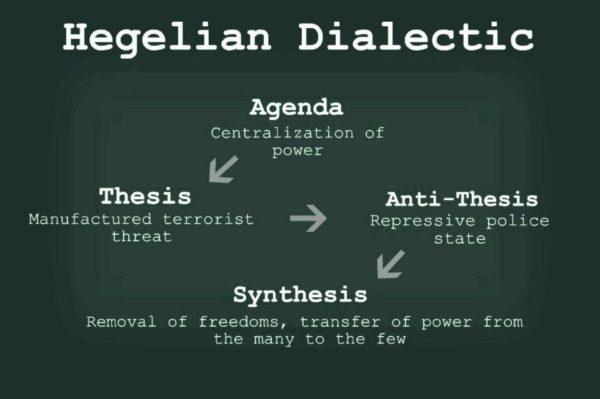

The thesis concludes that social thought and political action might be enriched and extended through a new synthesis of Marx with Hegel. The Hegelian Dialectic originated with George Wilhelm Friedrich Hegel (1770-1831), a nineteenth century school teacher, philosopher. Contemporary Marxist theory is subjected to critical analysis within the framework of a comprehensive account of dialectic method and exposition. The pattern of Problem-Reaction-Solution is The Hegelian Dialectic, a repeating pattern that plays out in reality: 1) Create a problem, 2) Foment a reaction (of anger or sympathy), and 3) Roll out the solution. The process as a whole he called the dialectical process, or just the dialectic, and he analysed it as made up of three main stages. He suggests that people who are best able to process ideas of simultaneous. The connection between the philosophies of Kant and Feuerbach and the ideology of contemporary bourgeois society is demonstrated, as is the organic, if antagonistic, unity between the alienated consciousness of Western Marxism and that of its bourgeois opponent. What is the rational kernel of Hegels dialectic that Marx famously speaks of How can it be extracted from the mystical shell in which it is embedded in. (3) This style is defined by people who associate a word with its polar opposite. The dissertation explores the writings of the young Marx and Feuerbach and shows that Western Marxism, to its theoretical detriment, owes much more to them than it does to Hegel and the mature Marx.

It examines and shows the strong similarities between Hegel’s and Marx’s theory of religion, capitalism and the state, and stresses that their theory details not the conditions for the emancipation of a class, but rather the liberation and freedom of the social individual.
#THE HEGELIAN DIALECTIC FULL#
The study also demonstrates that key concepts, which remain only implicit in Marx, such as socialĬlass, alienation, revolutionizing praotice, contradiction and dialectic are given full theoretical form only In the works of Hegel. That many discoveries, previously considered to be those of Marx alone, like surplus-value and the transition from capitalism to communism, were first developed and employed by Hegel. This is the dialectical movement: the harmony of a state of affairs is destroyed by an asymmetry, which calls for consciousness to create a new harmonious state. This thesis investigates the connection between Hegel’s theory of consciousness and society and Marx’s political and social thought. Ideology is interpreted broadly in this study as consciousness, where consciousness is the relation of knowledge to its object.


 0 kommentar(er)
0 kommentar(er)
